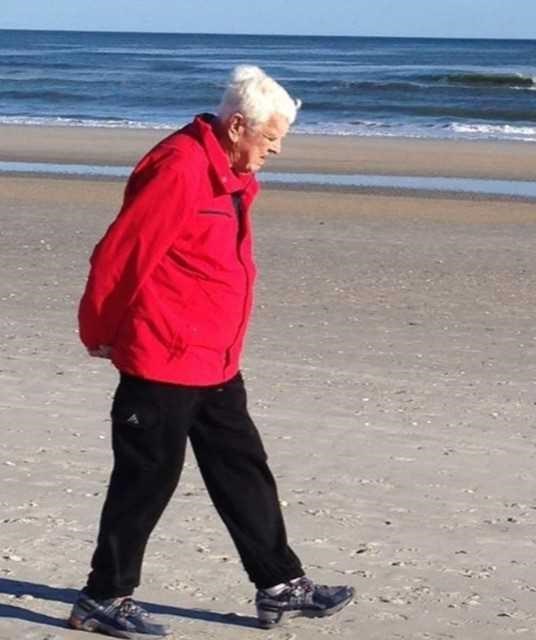Samuel Pretlow Winborne was born in Murfreesboro on March 5, 1923, the sixth of Stanley and Frances Jernigan Winborne’s seven children. His father was appointed to the State Utilities Commission in 1930, and the Winbornes moved to Raleigh with chicken coops tied on back of the family’s Hudson.
“Of course, we brought our chickens with us,” Winborne told an interviewer in 1965. “There were nine of us in the family. It was during the lean years, and chickens were hard to come by.”
Winborne attended school in Raleigh before entering Virginia Episcopal School in Lynchburg, Va. He played basketball as a freshman at the University of North Carolina in Chapel Hill. He interrupted his studies during World War II to enter the Army Air Corps. Serving as the upper turret gunner in a B-29 bomber in the China Burma India Theater, he earned the Air Medal and the Distinguished Flying Cross.
Winborne returned to Chapel Hill after the war and resumed his studies earning his law degree in 1950. It was there that he fell in love with a fellow student, Ferne Llewellyn Hughes and they were married in June 1949.
Winborne began practicing law in Raleigh with his brother Vaughan in 1950. He became a prosecutor in Raleigh City Court in 1957, and a City Court Judge in 1960.
“The pulse of our community beats in City Court,” Winborne said then. “Toward the end of a long day with one defendant after another flowing through City Court, it is like constant waves rolling ashore. I see them coming, swelling and then crashing over my head. And from this process we are to gather the fragile flower of justice.”
Winborne was elected a Wake County District Court judge in 1969.
The courts were watched closely during tense and sometimes violent racial clashes in the 1960s. He rebuked the Ku Klux Klan and “bigots” during the trial of a young white man for assaulting an elderly black man in October 1965, and the Klan took notice. One evening Winborne found a flaming cross – a KKK weapon of intimidation – on the lawn of his Blount Street home.
Winborne invited his neighbors over to roast hot dogs in the dying flames, and he laughed at the Kluxers. Winborne told The News & Observer, “We just had a good old time.”
Years later, on a flight to California, Winborne was delighted to come across an account of his wiener roast while reading “Blood Done Sign My Name,” Tim Tyson’s civil rights history.
Winborne stepped down after 18 years on the bench in 1978, and he and Ferne moved to the seaside town of Atlantic. He practiced law intermittently for 20 years in Carteret County, sometimes accepting payment from clients in fish, shrimp and oysters. His favorite outing was a trip to the county dump. More often than not he returned with a broken chair that he would mend or a toy to be fixed for neighborhood children.
He was devoted to Ferne and her passions for shrimping, weaving, raising sheep and caring for stray cats and dogs. After Ferne passed away in 2000, Pretlow kept busy repairing furniture, caning chairs and weaving baskets from the wisteria vines that flourished around his house in Atlantic. He lived independently in Atlantic until five years ago, when after a heart attack, his daughter May moved to Atlantic to care for him.
Pretlow Winborne is survived by his daughters, Ferne Winborne and her husband Mitch Wilds of Louisburg, and May Winborne-Rice and her husband Carter Rice of Wilmington; his son, Hughes Winborne and his wife Regina Okasaki de Freitas of Los Angeles; his daughter-in-law Betsy Winborne; his grandchildren, Elizabeth, Rosa, Alex, Wyatt, Sarah and Diego; and his sister, Rosa West Tucker of Southern Pines.
He was predeceased by his wife of 50 years, Ferne H. Winborne, in 2000, and by their son Sam in 2011.
Winborne’s family wishes to thank the caring staffs of Kindred Hospice in Oxford and Lower Cape Fear Hospice in Wilmington.
The Winborne family will receive friends Sunday, May 12, between 2pm and 5pm at the Polk House, 537 North Blount Street, in Raleigh.
Arrangements by Brown-Wynne Funeral Home, Saint Mary’s Street, Raleigh, NC.

